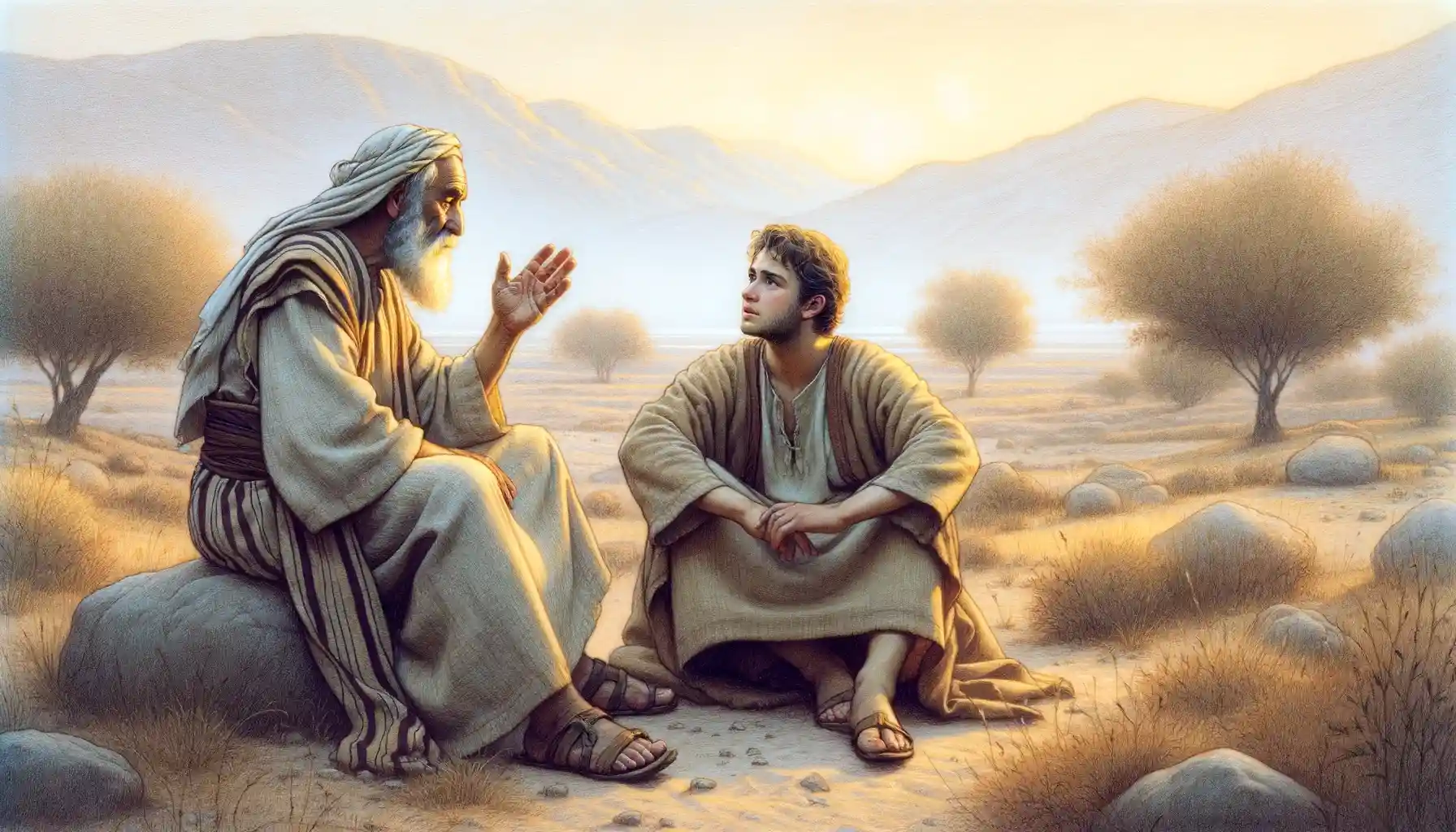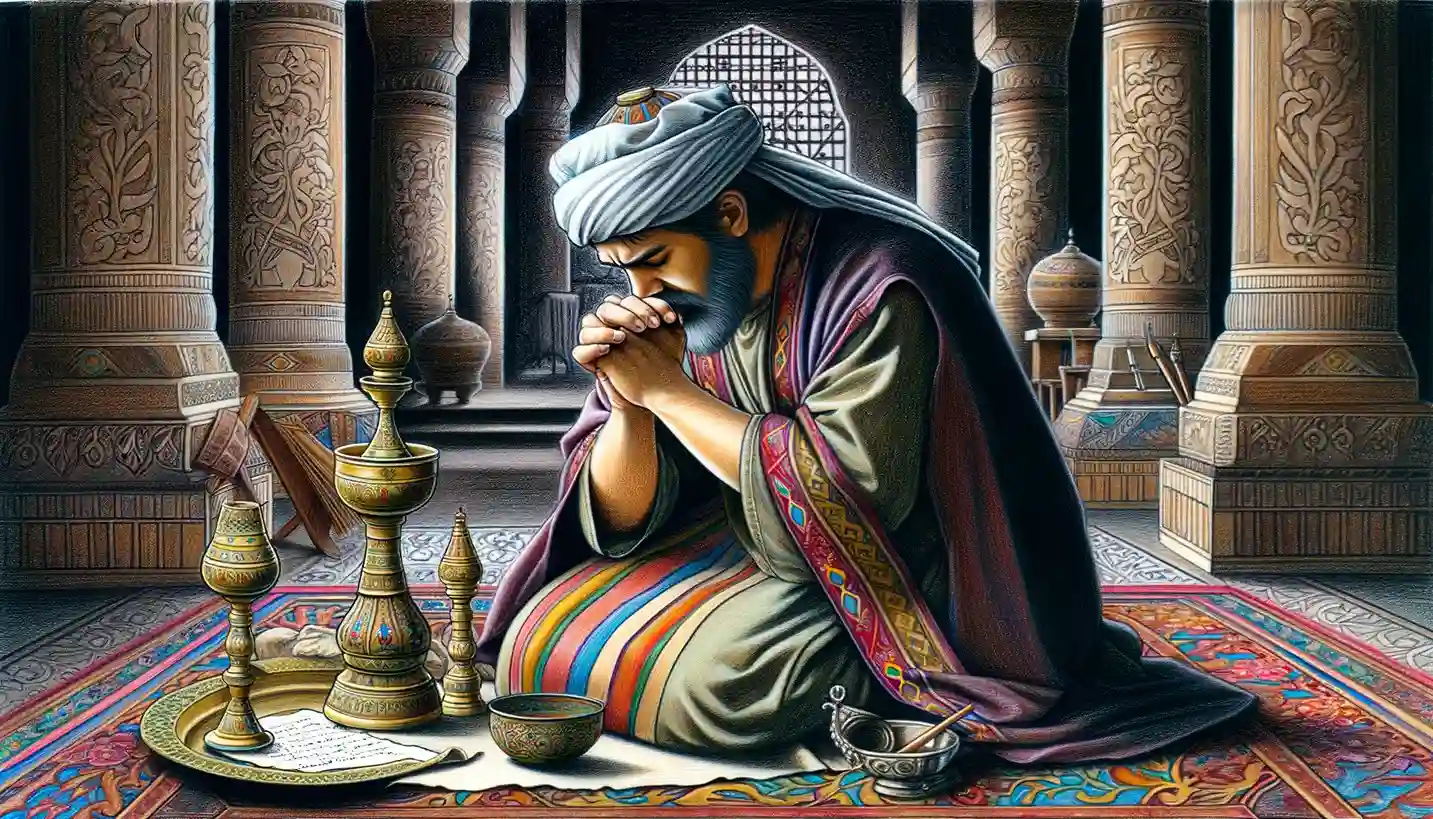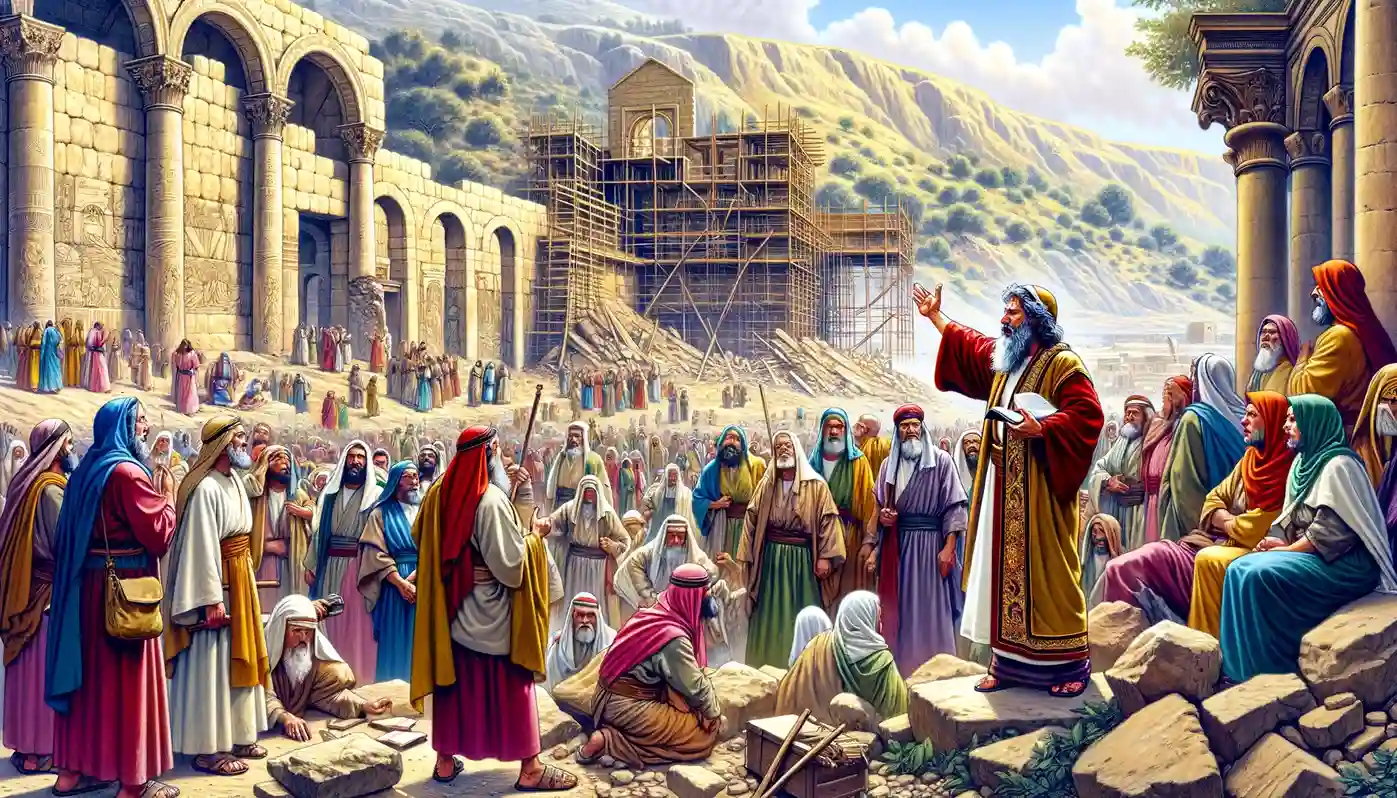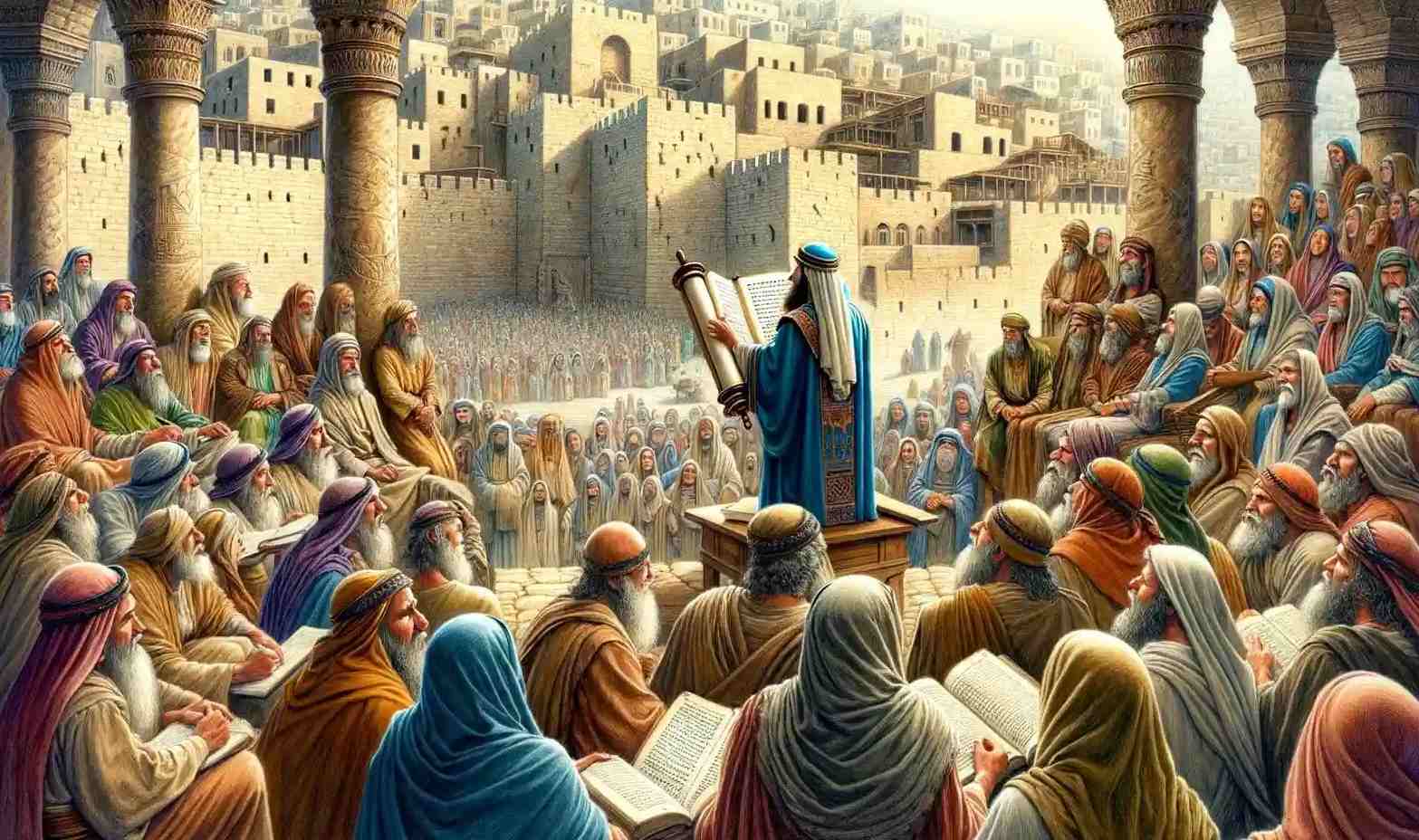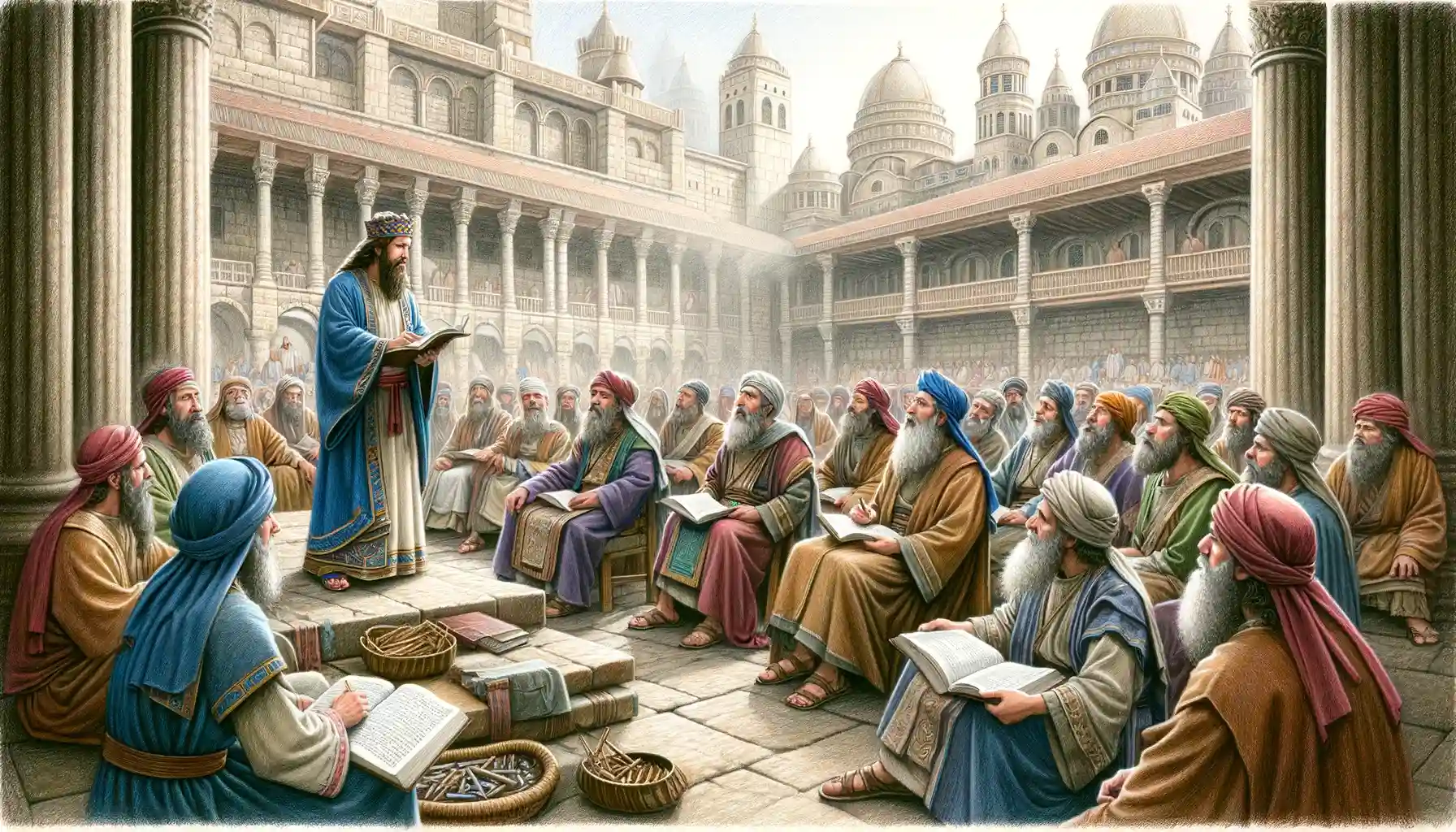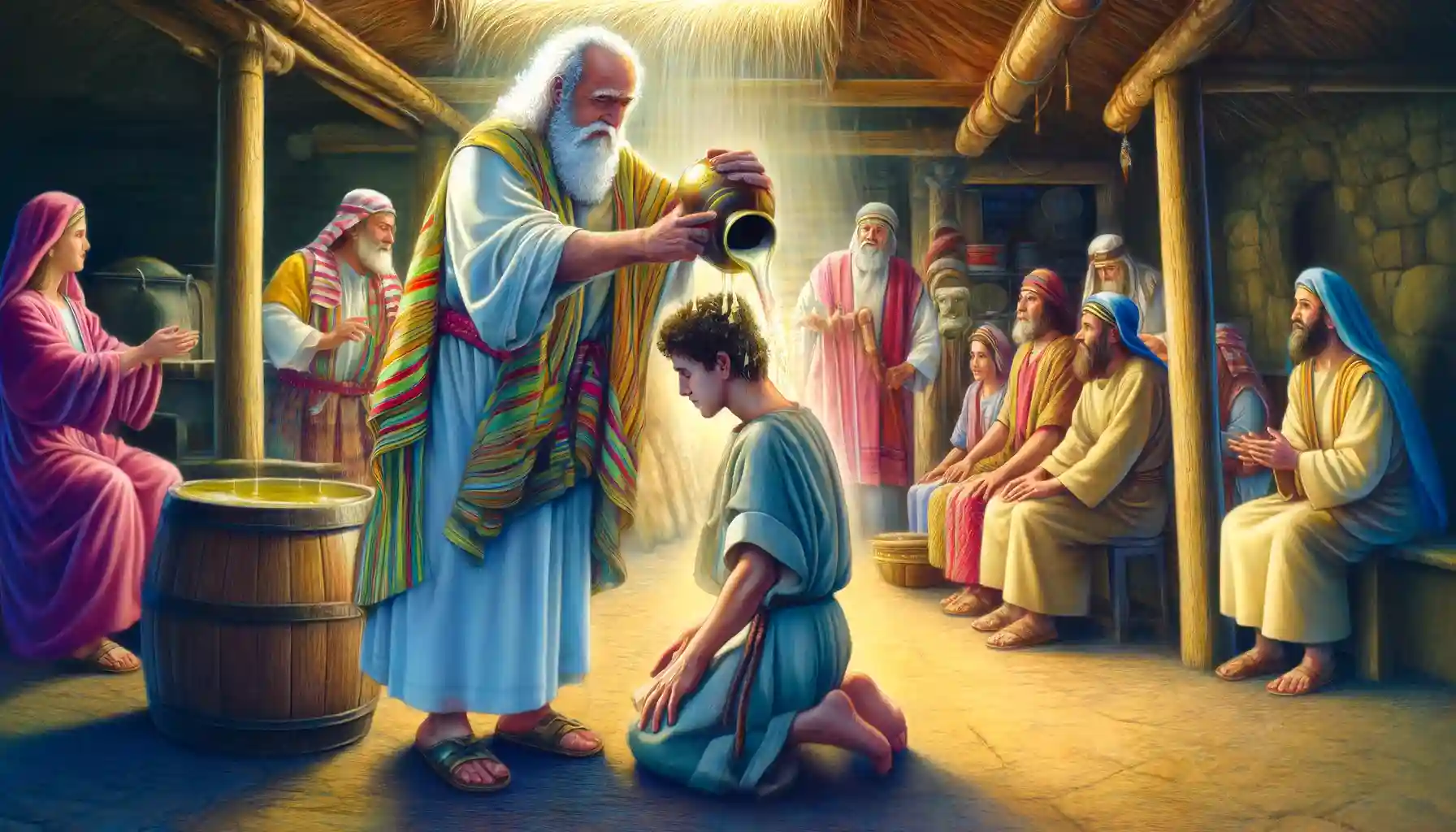Jethro, Moses’ father-in-law and the priest of Midian, is celebrated in the biblical narrative for his crucial advice on leadership and governance, helping to establish a practical and sustainable judicial system for the Israelites during their journey in the wilderness.
Miriam’s life and actions encapsulate the trials and triumphs faced by the Israelites during their formative years; as a prophetess and leader, her story contributes significantly to our understanding of the complexities of biblical leadership, the role of women in ancient Israel, and the enduring power of faith and prophecy, inviting reflection on the balance between authority and humility, and the importance of both challenging and supporting communal leadership.
Nehemiah’s prayer in Nehemiah 1:4-11 is a profound intercessory plea that combines confession, remembrance of God’s covenant, and a request for success in his mission, embodying a deep commitment to God’s will and demonstrating how true leadership is undergirded by humility, faith, and active reliance on divine guidance.
Joshua 1:9 commands Joshua to be strong and courageous, not to fear or be dismayed, for God reassures him of His unwavering presence and support, wherever he may go, marking a crucial moment of divine encouragement as he assumes leadership of the Israelites.
The Second Epistle to Timothy, penned by the Apostle Paul during his final days, serves as a heartfelt exhortation to his beloved disciple, urging Timothy to persevere in faith, guard the deposit of sound doctrine, and continue the work of ministry with courage and steadfastness.
The book of Nehemiah provides a narrative of physical and spiritual rebuilding that resonates with themes of resilience, communal responsibility, and the power of faith-driven leadership.
Ezra provides a narrative of hope and divine faithfulness, emphasizing that renewal is possible through adherence to religious foundations and responsive leadership.
1 Chronicles provides a unique perspective by reinterpreting Israel’s history to focus on theological and liturgical concerns, particularly relevant for the community returning from exile and rebuilding their identity.
1 Samuel provides a rich narrative that not only recounts historical events but also offers profound lessons on leadership, obedience, and the complex interactions between divine providence and human agency.

